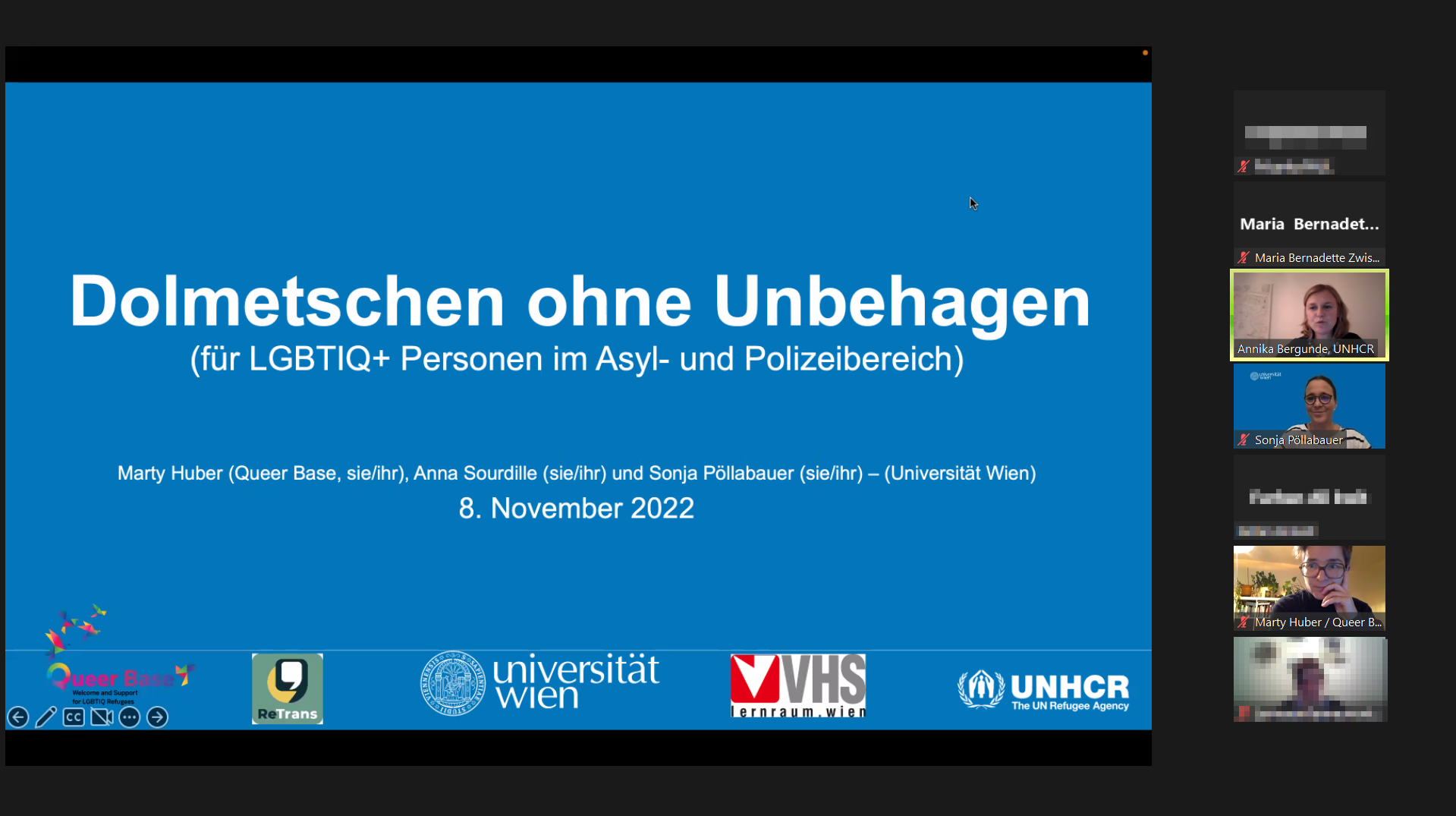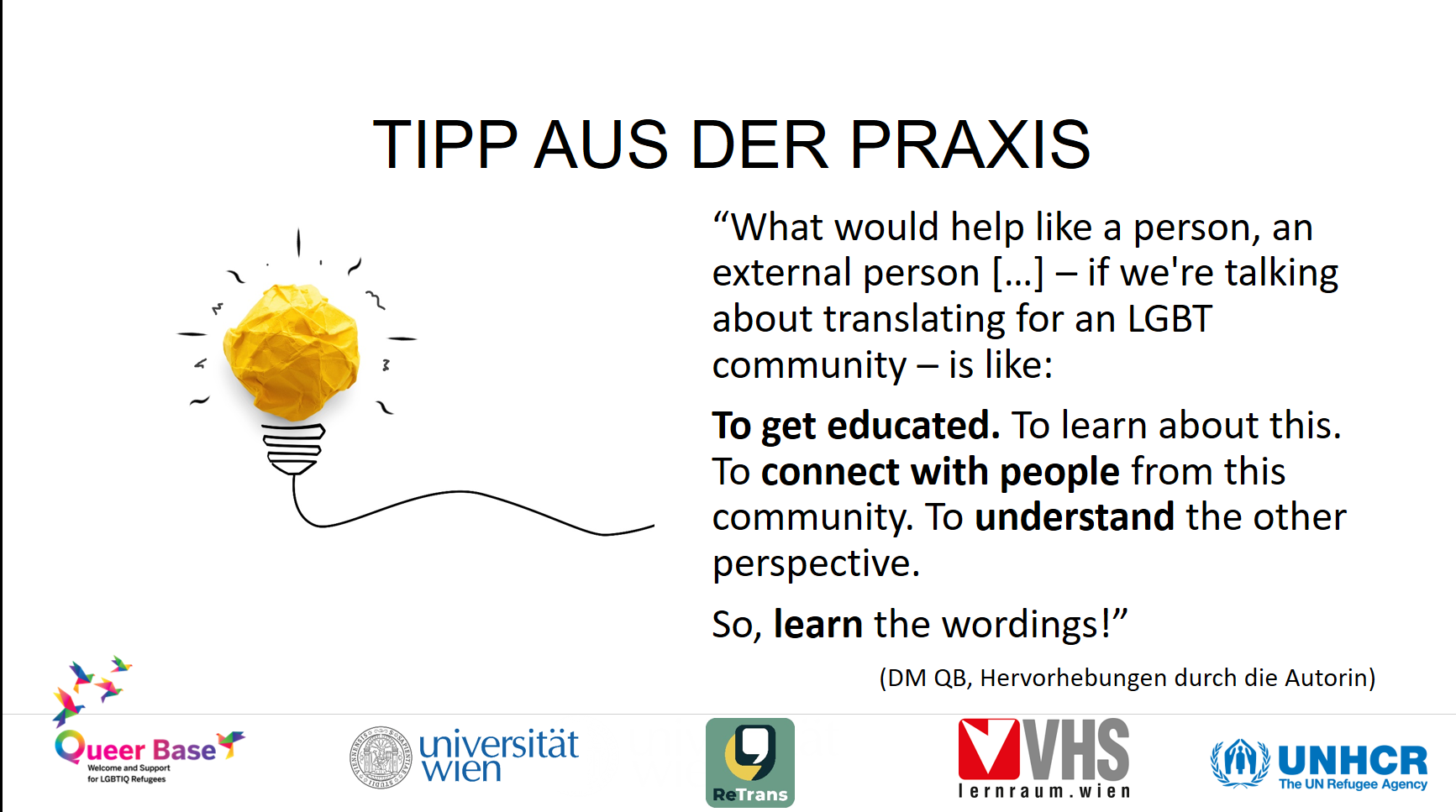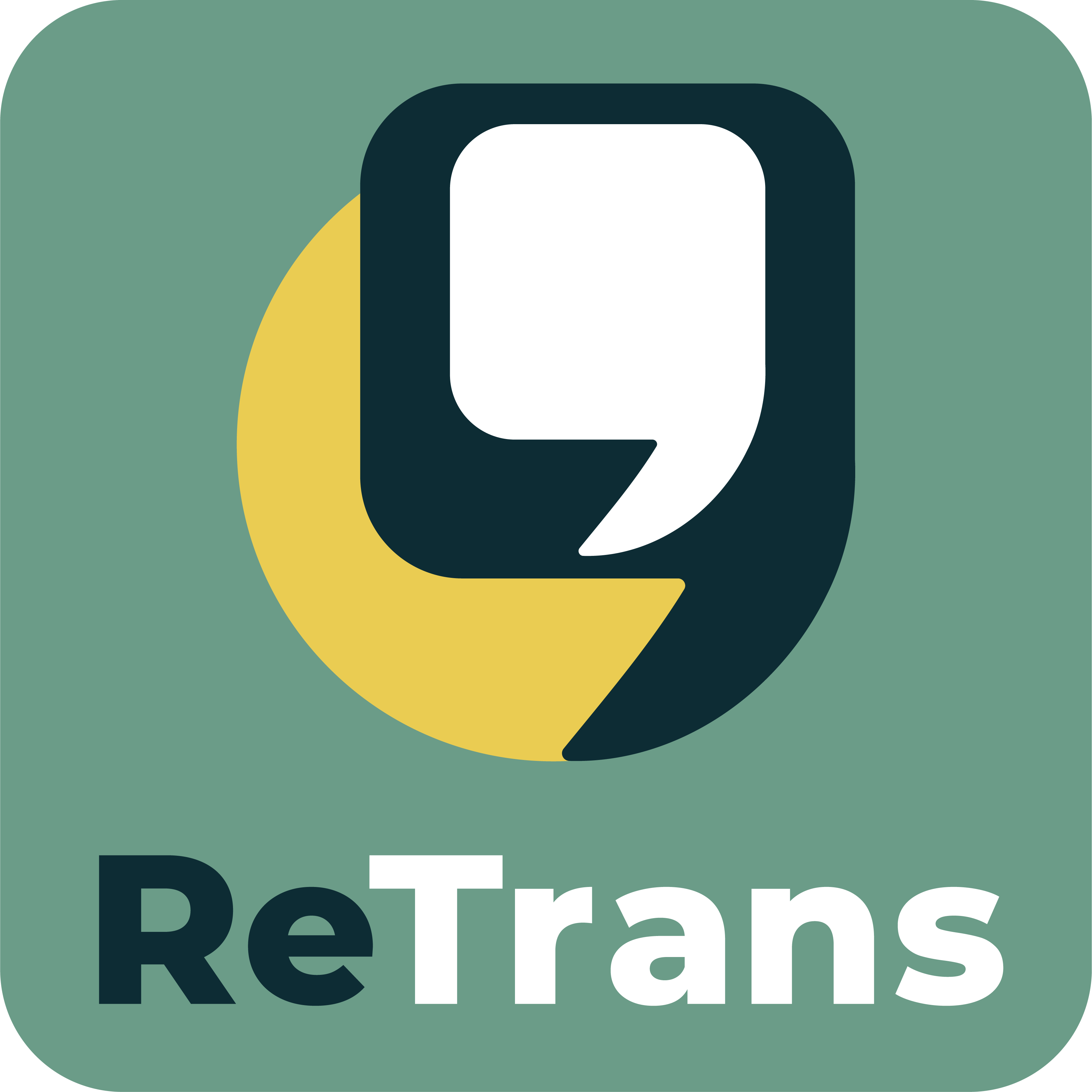Did you ever come across the term LGBTIQ+? Maybe you’ve read it several times but you are unsure what each and every letter really stands for? Perhaps you’ve wondered and/or led vivid discussions about how many letters make up the acronym and how many more will join the ranks? Or you’ve already encountered people identifying as queer in your line of work and you are now considering how to approach this vast terminological land when interpreting?

ReTrans has been keen on tackling those questions and others for a while now and reached out to other organizations with a similar interest in this topic. So together with QueerBase, a Vienna based counselling organization supporting and accompanying queer refugees seeking asylum in Austria and UNHCR Austria, a central institution pursuing longstanding work on international protection for people fleeing persecution worldwide, we came together in a 2-hour online workshop on Tuesday, 8th November 2022 to address uncertainties, discuss open questions and share experiences when interpreting for LGBTIQ+ people in police and asylum hearings. The event was hosted by VHS (Wiener Volkshochschulen), Viennese adult education centres offering basic and continuous learning modules for (active) interpreters working in asylum procedures and police hearings, and the Centre for Translation Studies of the University of Vienna.
Covering some ground…
By laying out the main concepts, e.g. LGBTIQ+, queer, SOGIESC, Marty Huber (QueerBase) explained where they originated from, whether their meaning changed over time, and what they specifically cover.
“People call us the alphabet-mafia because we seem to sneak in more and more letters. So they keep wondering when we’ll be finished… and well, I actually can’t answer that.”
Marty Huber
Queer Base
But the 75 workshop participants also heard more about the living conditions and life realities queer refugees face when coming to Austria to apply for asylum. People fleeing countries and seeking asylum on grounds of sexual orientation and gender identity have often experienced discrimination, physical and/or sexual violence, and even criminal persecution for an extended period of time in their countries of origin. Oftentimes demeaning treatment continues on their trajectory to a safer place and in the future host country.
…to get prepped for interpreting work
But how can an interpreter then tackle the terminological and personal insecurities in order to feel well-prepared for and adequately approach interpreting for people identifying as queer especially in asylum and police hearings? Sonja Pöllabauer and Anna Sourdille (Centre for Translation Studies) stretched in this regard the importance to get familiar with the specific wording and the community’s life realities – preparation is key.

There is a strong tendency to rely on English when no extensively established terminology is yet available in other languages. Preparing for interpreting tasks then covers also the building of glossaries in the respective working languages and finding adequate ways to reformulate terms or content where no equivalent solution yet exists. Some words may even be negatively connoted in respective languages and signify swear words, knowing about this helps interpreters to refrain from using them in an interpreting encounter. Other words initially signifying swear words have been reclaimed by the LGBTIQ+ community over time and serve now to describe their own identity. To keep up with such developments and stay attuned with terminological as well as life realities, it is important to be aware of queer history, to get educated about the circumstances LGBTIQ+ refugees left in their respective home countries and to familiarize oneself with available info material (e.g. videos, movies and podcasts etc.).
In search for more?
To further one’s engagement and to tackle personal reservations, there is always the possibility to become an ally in supporting the LGBTIQ+ community, attend queer events, and be on the lookout for educational workshops, talks, and further training on that matter. We definitely keep an eye out on offering further workshops for interpreters working in asylum procedures and police hearings in Austria and hope to meet many of you there!
See you soon!
Further reading
Author: Maria Bernadette Zwischenberger (University of Vienna, Centre for Translation Studies)
Source Featured Image: Photo by Robert Katzki on Unsplash
